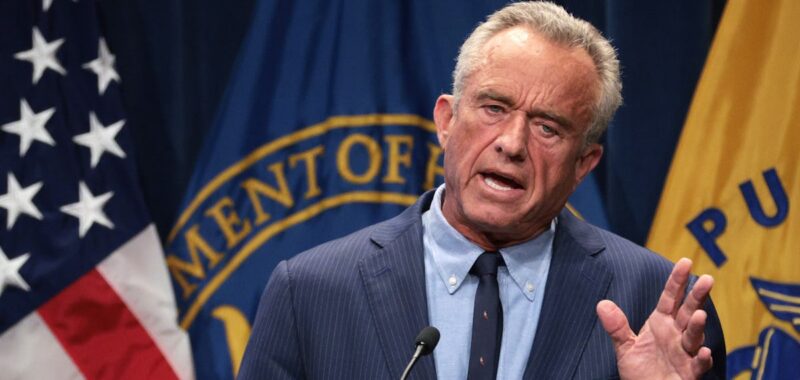As an autistic adult, I’ve watched Robert F. Kennedy Jr. make outrageous claims for years. But this time, this week, it hits closer to home. On Wednesday, Trump’s Secretary of Health and Human Services painted autism as something devastating to families, a crisis to be solved, a burden to be lifted. He painted autistic individuals as being “too much” and the destroyers of their family unit. He claimed autistic individuals would never be able to do anything like write poetry or pay taxes – as if that defines what gives worth to a human anyway.
I am autistic. I have real struggles. I need real support. But I also have a husband who loves me fiercely; a job that matters; I write children’s books; I pay taxes. I love big; I live fully.
But here’s the thing: Even if I didn’t have those things, I would still be valuable and worthy. Kennedy’s rhetoric doesn’t just misunderstand autism — it crosses off the humanity of autistic people. It reduces us to burdens or symptoms instead of recognizing us as whole people. It fuels fear in parents, shame in kids and hopelessness in communities. It adds to the exhaustion of families who are already doing everything they can to support their children. And it makes autistic people — like me, like my friends, like so many kids I’ve worked with — feel like we’re something to mourn instead of someone to love.
Take Victor, who was my first client as a speech and language pathologist over a decade ago. He was nonspeaking, often sensory overloaded and dysregulated. That is until he was seen, understood and given tools like AAC (augmentative and alternative forms of communication, such as the use of a communication app on an iPad or a dedicated speech generating device) and surrounded by relationship and trust. He thrived.
Or Duressa, a nonspeaking teenager labeled “aggressive.” Given the right support, he started singing during one of our sessions. Singing! Then he started seeking me out every day, his eyes full of light, saying without words to me, “I see you, Meg. I trust you. I want to be around you.”
Or 21-year-old Marie who was living in a group home. She was told she wouldn’t learn anything new because autism had “frozen” her potential in childhood. We called bullshit. We hung out weekly — not in any sort of therapy session because insurance didn’t cover that and because her mom and I were curious if we could expand her quality of life and maximize on her skills. We tried many new things. And guess what? Her flexibility grew. Her communication grew. She grew. And she became my friend.
These are not exceptions. These are humans. Autistic people are not failed neurotypicals. We are not broken. We are not the punchline of a political agenda.
Yes, parenting an autistic child can be hard. There are real struggles. Real exhaustion. I’ve seen it. I’ve lived it. But do you know what makes it harder? Public figures like RFK, Jr. who amplify fear and misinformation instead of listening to autistic voices. He says he wants to help families, but he’s only adding to the weight we all carry.
Autism doesn’t destroy families. But false narratives can. Ignorance can. Stigma can.
We don’t need pity. We need partnership. We don’t need cures. We need connection. We don’t need fear. We need fierce love.
There are so many people behind the statements and statistics. There are kids who deserve more than fear-based policies; the families who need support, not scare tactics; autistic adults like me — living full lives, navigating real challenges and still showing up everyday.
Because autism isn’t the problem. The problem is a culture that refuses to listen. The problem is when power drowns out lived experience. The problem is when leaders treat us like tragedies, instead of sitting with us long enough to realize we’re miracles in motion.
I am not less.
Autistic kids are not less.
Families raising them are not less.
We are not waiting to be saved.
We are waiting to be understood.
And we’re not going anywhere.
Meg Raby is a mom, children’s author of the My Brother Otto series, and Autistic residing in Salt Lake City where you can find her playing and working with neurodivergent children as a Speech Language Pathologist and friend, or writing and planning big things in the second booth at her local coffee shop that overlooks the Wasatch Mountains while sipping on her Americano. Meg believes the essence of life is to understand, love and welcome others (aka, to give a damn about humans).

